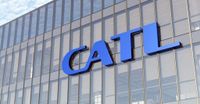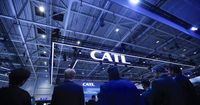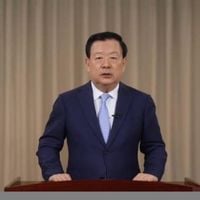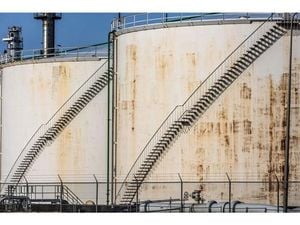Shares of the Chinese company Contemporary Amperex Technology (CATL) fell on Friday, April 18, 2025, after a congressional committee urged two major American banks to withdraw from their roles in the company's anticipated initial public offering (IPO) on the Hong Kong Stock Exchange. John Molenaar, chairman of the House Select Committee on the Chinese Communist Party, sent letters to Jamie Dimon, CEO of JP Morgan, and Brian Moynihan, CEO of Bank of America, warning that the banks' involvement could expose them and American investors to "significant regulatory and financial risks" and damage their reputations.
In the letters, Molenaar highlighted that CATL was placed on the Pentagon's blacklist in January due to alleged ties to the Chinese military. This designation has raised concerns among U.S. lawmakers about the potential implications for American investors. The letters referenced the "America First Investment" policy initiated by former President Donald Trump, which aims to deter Wall Street from directing U.S. investors' funds towards supporting CATL's IPO.
CATL is a key supplier for Tesla and has publicly opposed its inclusion on the U.S. blacklist. Although the blacklist does not impose direct sanctions, it discourages companies from engaging with entities on the list. Following the congressional committee's statements, CATL's shares on the Shenzhen Stock Exchange dropped by approximately 0.9% before recovering some losses.
Earlier this month, CATL received approval from Hong Kong to proceed with its IPO, which is expected to raise at least $5 billion, making it the largest IPO of its kind in the world this year. On the preceding Thursday, shares of Bank of America rose by 0.2%, while JP Morgan's shares increased by 1%.
Should the banks refuse to withdraw from the deal, the committee has requested detailed responses to 21 questions regarding risk assessments, compliance mechanisms, and potential violations of U.S. laws. Both Bank of America and JP Morgan declined to comment on the matter.
A spokesperson for CATL asserted that the allegations in the congressional letters are "baseless," emphasizing that the company has never engaged in military-related activities. The spokesperson described the inclusion of CATL as a military company as a "mistake" and stated that the company is currently working with the U.S. Department of Defense to clarify any misunderstandings.
Investment expert Zhai Jingyong, CEO of Banyan Investment Management, noted that CATL does not require liquidity and that many investors are eager to participate in the IPO. He suggested that if the two American banks were to withdraw, they would be quickly replaced by other investors.
The congressional requests come at a time when the recovering IPO market in Hong Kong faces significant risks due to uncertainties stemming from the ongoing trade war between the United States and China. Following President Trump's announcement of tariffs on April 2, the momentum in the city's benchmark index has waned. JP Morgan currently ranks fifth in Bloomberg's rankings for equity and deal activities in Asia (excluding Japan), while Bank of America ranks eleventh.
Both banks previously managed Xiaomi's $5.5 billion IPO alongside Goldman Sachs and China International Capital, and they also participated in a $2 billion convertible bond offering for Baidu linked to Trip.com Group.
Last year, IPOs in Hong Kong generated $11.2 billion, marking a nearly 90% increase compared to 2023, according to Bloomberg data. However, revenues from both banks' equity underwriting activities have declined in the first quarter compared to the previous year, as the uncertainty surrounding the trade war impacts IPO activities across the United States and Europe, leading to the suspension of many anticipated IPOs.
The congressional committee's concerns echo a previous report in which it labeled the Chinese artificial intelligence company Deep Seek as a "serious threat" to U.S. national security, further intensifying scrutiny on Chinese firms.






